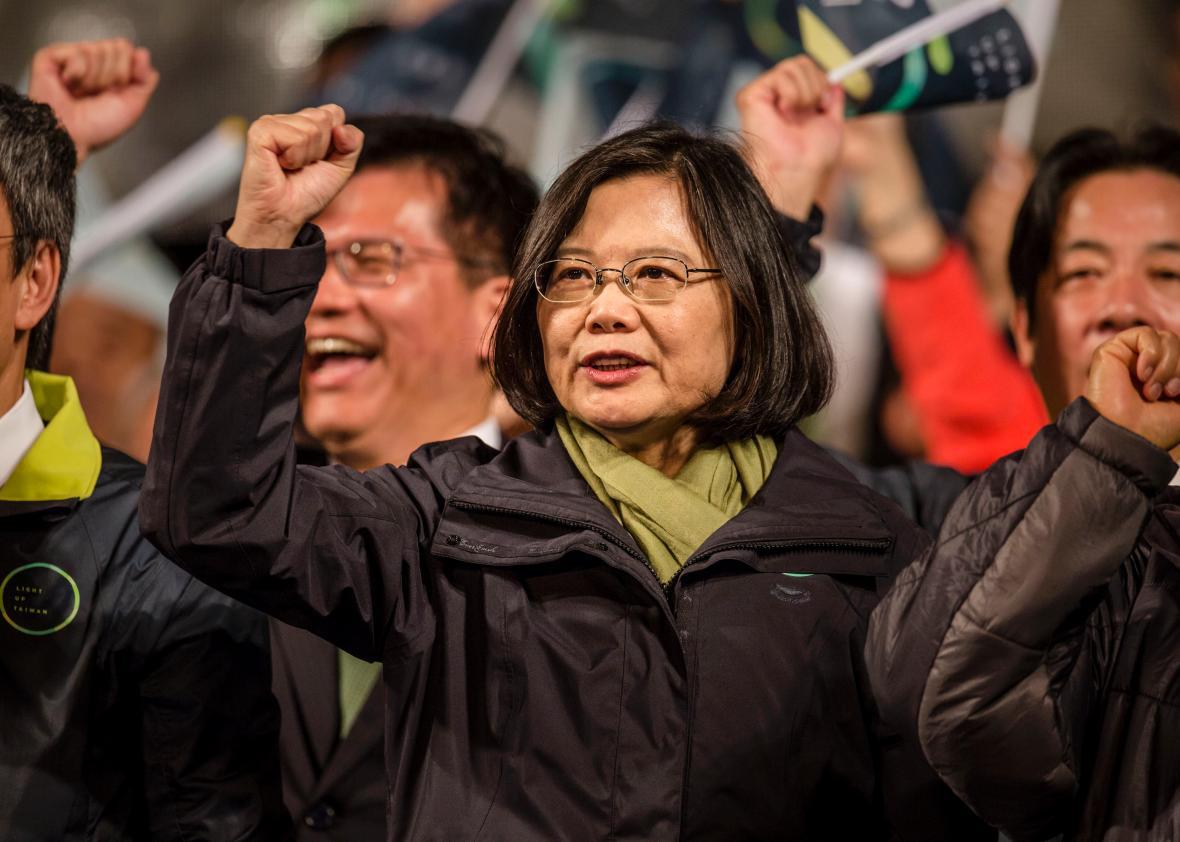Taiwan will have its first female president after voters elected Tsai Ing-wen, a pro-independence politician who managed to defeat the China-friendly party that has ruled the island for eight years. The election could increase the tiny island’s tensions with Beijing, as Tsai’s Democratic Progressive Party has long advocated independence from China.
A key question for analysts now is to try to figure out how much a 16-year-old K-pop star affected the results. Voting day was marked by outrage across Taiwan over a public apology issued by singer Chou Tzu-yu after she briefly waved a Taiwanese flag on South Korean television. “I’m sorry … there is only one China, Taiwan and China are part of the same country,” Chou, a member of the K-pop group Twice, reads from a script in a video released by her management company.
“In Taiwan, online commentators compared her apology to hostage videos released by the Islamic State, although it was probably more reminiscent of the sort of humiliating confessions that dissidents are increasingly forced to make on Chinese state television,” notes the Washington Post’s China bureau chief Simon Denyer.
Shortly after winning the election, Tsai made reference to the video that has been viewed millions of times. “This particular incident will serve as a constant reminder to me of the importance of our country’s strength and unity to those outside our borders,” she said.
The controversy over the humiliating video engulfed Taiwan on election day and both main presidential candidates defended Chou. But before voting ended, analysts predicted that anger over the incident could help increase turnout, benefiting the pro-independence politicians. “Any boost to the turnout likely helps Tsai and the DPP, particularly since this has gone viral among young people,” said Clayton Dube of the University of Southern California’s U.S.–China Institute.
Yao Li-min, chairman of the Citizen’s Congress Watch, agreed, telling the South China Morning Post that “neutral voters who previously did not want to go out to vote might show up to cast their ballots to Taiwan-centric candidates and China-friendly candidates could suffer as a result.”
After her victory, Tsai took pains to emphasize she would not be unnecessarily provocative against the country that has hundreds of missiles pointing at the island she now leads. “Both sides have a responsibility to do their utmost to find mutually acceptable ways to interact with respect and reciprocity and ensure no provocation and no surprises,” Tsai said. But she also warned her government would not hesitate to defend Taiwan’s interests. “Our democracy, national identity and international space must be fully respected and any suppression would undermine the stability of cross-Strait relations.”
